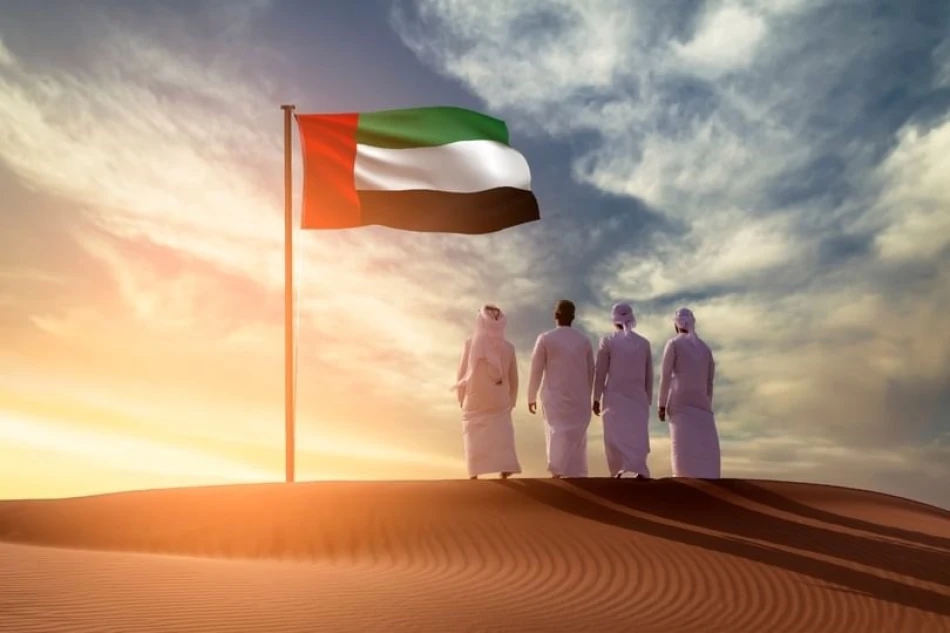
UAE Celebrates International Youth Day with Vibrant Festivities
UAE Sets Bold Blueprint for Youth Empowerment as International Youth Day Highlights National Strategy
As the UAE marks International Youth Day 2025, the nation showcases a comprehensive transformation in how it develops and integrates young talent into decision-making roles. With youth increasingly occupying key positions across government and private sectors, the Emirates has positioned itself as a regional leader in youth empowerment, backed by concrete policies and measurable outcomes that extend far beyond symbolic gestures.
Strategic Vision Drives Measurable Youth Integration
The UAE's National Youth Agenda 2031 represents more than aspirational planning—it establishes Emirati youth as a global benchmark for intellectual contribution, values-based leadership, and economic development participation. This year alone witnessed the launch of the UAE Youth Council for Entrepreneurship, designed to amplify youth voices in economic policy and national competitiveness strategies.
The Young Financial Advisors Program exemplifies the UAE's practical approach to youth development, training certified financial consultants who can improve financial literacy rates and stimulate domestic savings and investment patterns. This initiative addresses a critical gap in financial education while creating professional pathways for young Emiratis.
Physical Infrastructure Supports Digital-First Generation
The establishment of dedicated youth spaces in Abu Dhabi's "Madar 39" and Fujairah represents the UAE's recognition that digital-native generations require hybrid physical-digital environments for collaboration and innovation. These spaces, part of the National Youth Agenda's first implementation phase, provide tangible venues for youth-led initiatives and cross-sector networking.
Regional Leadership Through Humanitarian Engagement
The 2025 launch of the UAE Youth Council for Humanitarian Work, developed through partnerships between the International Humanitarian Affairs Council and the Federal Youth Authority, positions young Emiratis as active contributors to sustainable development goals. This move leverages the UAE's growing influence in international humanitarian efforts while developing youth expertise in global governance.
Policy Innovation Creates Institutional Change
The UAE's 2019 mandate requiring youth representation on government boards and corporate governance structures demonstrates institutional commitment beyond rhetoric. This policy innovation forces established organizations to adapt their decision-making processes and creates accountability mechanisms for youth integration.
The National Youth Survey, launched in 2022, provides data-driven insights into youth social, political, economic, and cultural development. This systematic approach to understanding generational perspectives enables evidence-based policy adjustments and strategic planning.
Regional Hub Strategy Extends Beyond Borders
The UAE's positioning as a hub for Arab youth development creates strategic advantages in regional influence and soft power projection. The Arab Youth Center, established in 2017, operates multiple flagship programs including the Arab Youth Hackathon and Young Arab Diplomatic Leaders Program, effectively making Dubai and Abu Dhabi essential destinations for ambitious young Arabs.
Space Sector Investment Signals Future Focus
The Arab Space Pioneers Program, launched in 2020 under the UAE Space Agency, demonstrates how the Emirates connects youth development with strategic economic sectors. By training Arab youth in space sciences and technologies, the UAE builds regional expertise while strengthening its position in the emerging space economy.
Market Implications and Competitive Positioning
The UAE's systematic approach to youth empowerment creates competitive advantages in attracting international investment and talent. Companies operating in the Emirates gain access to a highly trained, government-supported youth workforce with strong digital skills and international perspectives. This human capital development strategy supports the UAE's economic diversification goals while reducing dependence on expatriate expertise.
The integration of youth voices in economic policy-making through formal councils and advisory roles provides businesses with insights into emerging consumer preferences and technological adoption patterns. This institutional knowledge transfer mechanism helps multinational corporations adapt their strategies for regional markets.
Sustainable Development Through Generational Investment
The UAE's youth empowerment strategy addresses long-term sustainability challenges by building domestic capacity across critical sectors. The emphasis on financial literacy, entrepreneurship, and humanitarian leadership creates a foundation for continued economic growth and regional stability. By investing in youth development infrastructure and formal integration mechanisms, the Emirates positions itself to maintain competitive advantages as regional demographics shift toward younger populations.
Most Viewed News

 Sara Khaled
Sara Khaled






